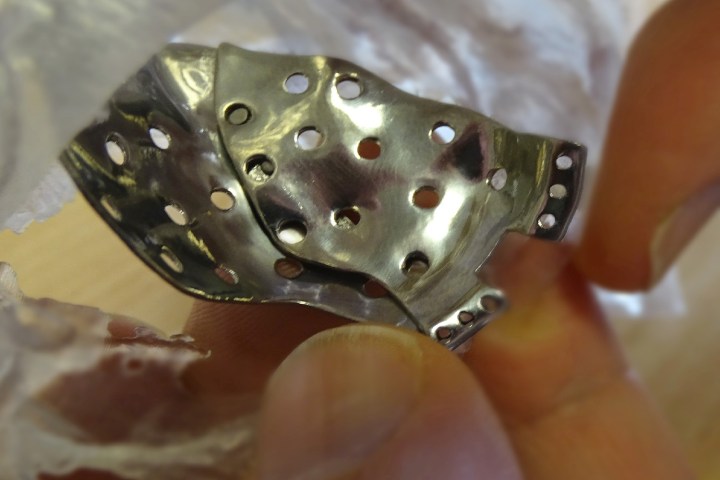
Called ADEPT, or Additive-manufacture for Design-led Efficient Patient Treatment, the software is the result of a three-year investigation carried out by Morriston Hospital and Cardiff Metropolitan University, both in Wales, and industry partners.
“We wanted a turnkey solution for designing custom implants for the facial skeleton,” Peter Llewelyn Evans, head of prosthetic maxillofacial rehabilitation at Morriston, told Digital Trends. “Most patients who have a facial injury — through trauma, or a bone that has been removed to access a tumor — have that area repaired using an off-the-shelf piece of metal. This metal is bent into shape by surgeons in theater. What we have produced is smart software that allows surgeons to design an implant with just a few mouse clicks, and then export it so that it can be 3D-printed in titanium alloy.”
Evans said that while technology for designing implants has been around for a while, it has previously been difficult to use and very expensive.
“Normally, you would require two or three pieces of software to design an implant from CT data,” Evans said. “That process can be quite expensive in terms of the packages involved. What we can now do is to carry out all of this in one piece of software, which is not only much cheaper but also more intuitive for the surgeons.”
The next step involved with ADEPT is a presentation that will take place at the U.K.’s Collaborate to Innovate Conference on November 17. After that, it might not be long before it’s being used in earnest.
“We’ll then roll it out to maxillofacial units around the U.K. who will beta test it and help us iron out any bugs,” Evans continued. “When we’ve got all the feedback, we’ll release the software following the end of the project.”


